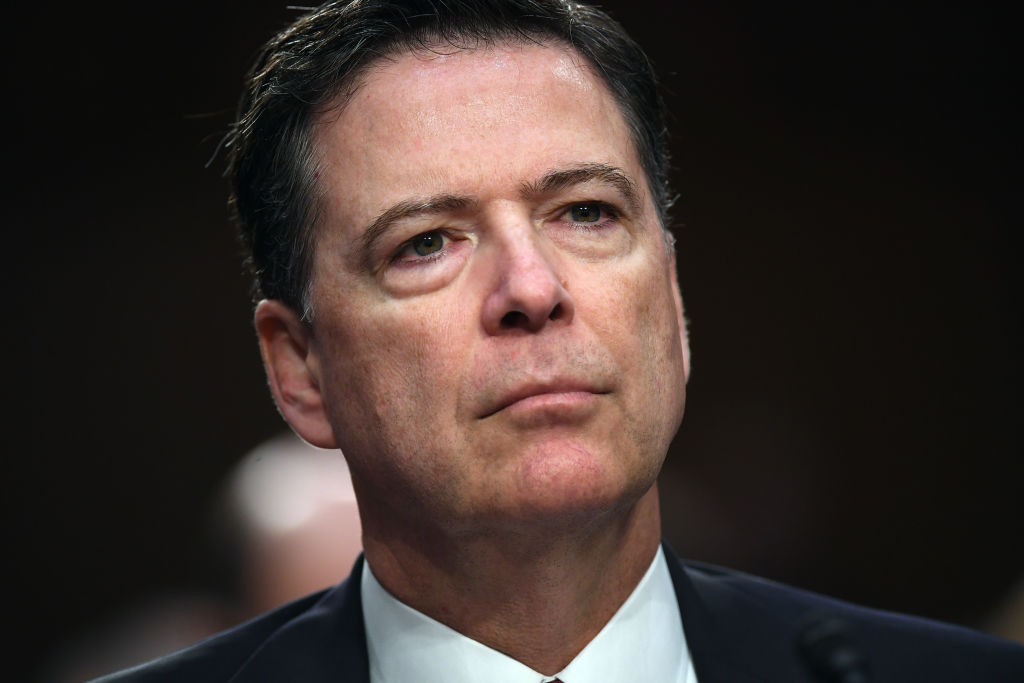Transcript: Sen. Susan Collins on "Face the Nation," June 4, 2017
Ahead of former FBI Director James Comey's much-anticipated testimony before the Senate Intelligence Committee, "Face the Nation" sat down with Maine Republican Senator Susan Collins, who is a member of the committee.
Collins discussed hearings that are set to take place this week, as well as President Donald Trump's reaction to Saturday night's attack in London.
The full transcript of the interview, which aired Sunday June 4, 2017 on "Face the Nation," is below.
JOHN DICKERSON: And We're back with Maine Republican Senator Susan Collins, who is also a member of the Intelligence Committee. Senator, before we get to the hearings this week, I want to ask you. The President's reaction to this horrible attack was that he said the travel ban that he's pushed for needs to be enacted now. Do you agree with that?
SUSAN COLLINS: I don't. I think that the travel ban is too broad, and that is why it's been rejected by the courts. The President is right, however, that we need to do a better job of vetting individuals who are coming from war-torn countries into our nation. But I do believe that the very broad ban that he has proposed is not the right way to go.
JOHN DICKERSON: Let me ask you about the hearings next week. You said to the New York Times that, that this was like a tapestry, and that there are threads. And you're seeing more and more, the more you get into it. How big is that tapestry? Is it getting bigger? How--Do you feel like you've got a handle on it or does it just keep getting bigger?
SUSAN COLLINS: There is so much speculation and so many stories and so many leaks that it's very difficult to determine the facts of the Russian involvement in our elections last fall, the extent to that of that involvement, and also whether or not there was collusion or collaboration with members of President Trump's campaign team.
And that's why the hearings this week are so important, particularly the hearing on Thursday with Mr. Comey. This will give us a chance to get his perspective on the issue of Russian involvement and also on the issue of collaboration or collusion. What has he seen? What initial judgments has he made?
JOHN DICKERSON: You've mentioned, I think because of that complexity, you might, it might benefit from having a special investigator on the committee. What--Is that the benefit of that?
SUSAN COLLINS: It is. This is extraordinarily complex. And we have a wonderful staff of experts and intelligence. But I think we would benefit from having an experienced investigator overseeing the investigation. I will say, every member of the committee has been extremely active in reviewing the evidence that we do have so far.
JOHN DICKERSON: How much of your time does this take up, all of that evidence?
SUSAN COLLINS: It's taking up a great deal of time. I've made three different trips to C.I.A. headquarters to go over the raw intelligence. That's information that we don't usually get to see. One reason that I'm so eager to question Mr. Comey is in the letter in which he fire-, in which the President fired the former F.B.I. director, there's a very interesting phrase in which he says, "While I am very grateful that you, on three separate occasions, informed me that I was not a subject of the investigation..."
That phrase raises a lot of questions in my mind. Does Mr. Comey agree that that is what was said? Why would he tell the President that? What was the tone and the context of those discussions on three different occasions, if they in fact are accurately portrayed in this letter?
JOHN DICKERSON: Also, Mr. Comey at one point said that in testimony, he said there was no effort to block this investigation. So how do you see those-- squaring those two things?
SUSAN COLLINS: That is one of the reasons why it's so important for us to hear from Mr. Comey before our committee, as well as other witnesses. The acting director of the F.B.I. also said that there'd not been an attempt to influence the investigation. And yet, we hear of all these memos to the file, all of these dinners and meetings between President Trump and the F.B.I.-- the former F.B.I. director.
So we need to hear directly from Mr. Comey on these important issues.
JOHN DICKERSON: And in your mind, is there a space where the President could have put pressure on him, but pressure is not all the way to obstruction?
SUSAN COLLINS: Absolutely. Let me give you an example of the conversation that allegedly occurred about Michael Flynn. If the President said, "Look, I just fired the guy, I feel bad for him. What do you think's going to happen?" That's one thing. If, on the other hand, the President said to Mr. Comey, "I want you to end this investigation of General Flynn. I wanted it ended now.
And if you don't do so, you're going to be in trouble," that is a whole different nature of a conversation. And that's why the tone, the exact words that were spoken, and the context are so important. And that's what we lack right now. And we can only get that by talking to those directly involved.
JOHN DICKERSON: All right, Senator Collins. Thank you so much for being with us.
SUSAN COLLINS: Thank you.
JOHN DICKERSON: And we'll be back in a moment.



